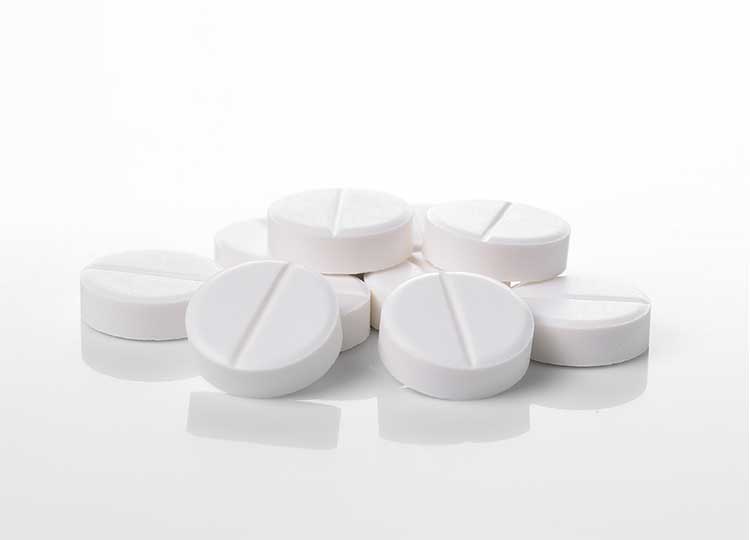Plugging Percocet | Effects & Dangers Of Rectal Use

Medically Reviewed By: Manish Mishra, MBBS

Written by: Dr Jason Martin Psy.D., LCPC
Plugging Percocet, a process which involves injecting Percocet into the anus, may lead to intensified side effects, such as severe sedation or difficulty breathing, as well as damage to the rectum.

The brand name painkiller Percocet (the combination of acetaminophen and oxycodone) is a powerful opioid prescription drug used to help provide pain relief.
Some may participate in “plugging” Percocet by crushing the pill, combining the powder with liquid, and inserting the drug into the rectum.
When rectal administration of Percocet takes place, this strong pain reliever enters the bloodstream more quickly than if the medication were taken orally and as prescribed.
According to the United States Drug Enforcement Administration (DEA), this opioid medication has a high potential for abuse and can lead to physical or psychological dependence.
Percocet is a Schedule II controlled substance. This means those who participate in Percocet abuse by “plugging” the drug and inserting it into the rectum may experience life-threatening symptoms due to the serious nature of this route of administration.
Effects Of Plugging Percocet
Plugging Percocet may consist of heightened common side effects in addition to a risk of withdrawal symptoms after discontinuation.
Whether a person abuses the immediate-release or extended-release tablets of Percocet, some of the more common side effects of the drug can be heightened when Percocet is plugged.
According to the United States Food and Drug Administration (FDA), side effects of Percocet drug use may consist of:
- sedation
- feelings of euphoria
- constipation
- drowsiness
- nausea
- headache
Plugging Percocet may worsen these side effects because opioid receptors in the brain are affected, quickly depressing the central nervous system (CNS).
Percocet is a CNS depressant which, when combined with other medications, may lead to drug interactions or severe health issues including breathing problems.
Withdrawal Symptoms
The National Institute on Drug Abuse (NIDA) states that if an opioid prescription drug is abruptly stopped, withdrawal symptoms can take place. Some of these may include:
- diarrhea
- cravings for the drug
- sleeping problems
- vomiting
- muscle pain
- dehydration
Dangers Of Plugging Percocet
Those who use alternative routes of administration such as snorting, smoking, injecting, or plugging Percocet may not only experience greater effects but may also develop serious health problems as well.
Damage To The Rectum
Plugging Percocet can cause harm to the rectal lining. Abscesses may form which can lead to bleeding and scarring of tissue.
Continuous use of Percocet in this manner can damage the walls of the anus, creating inflammation and, more seriously, the death of anal tissue. Bacterial infections and difficulty having bowel movements may accompany the damage to the rectum.
Diseases
Those who engage in anal sex or use the same syringes as others plugging Percocet may pass diseases through bodily fluids. This may lead to hepatitis, HIV, or other diseases.
Adverse Reactions
To avoid any drug interactions or adverse reactions, it’s important to not combine certain substances or drugs with Percocet, as it can lead to life-threatening health problems. Any medications containing opiates should be avoided.
If you take certain antidepressants or benzodiazepines, notify your doctor. Other opioid analgesics should be avoided as well, including codeine, hydrocodone, and fentanyl.
Opioid Overdose
Those who participate in plugging Percocet may have an increased risk of overdose. Taking large doses of Percocet or abusing the drug can result in an opioid overdose.
Symptoms of a Percocet overdose can include:
- clammy skin
- seizures
- loss of consciousness
- fainting
- pinpoint pupils
- respiratory depression
- sudden death
If you suspect an overdose has taken place, contact 911 immediately. To provide immediate treatment, a healthcare professional may administer Narcan (naloxone), a medication used to help reverse the effects of opioid overdose.
If you or a loved one struggle with prescription drug abuse, consider substance abuse treatment.
At Ohio Recovery Center, we offer inpatient addiction treatment options that include medical detox, behavioral therapy, medication-assisted treatment, and mental health counseling. To learn more, please contact us today.
- Frontiers in Pharmacology — Physiological and Pharmaceutical Considerations for Rectal Drug Formulations https://www.ncbi.nlm.nih.gov/pmc/articles/PMC6805701/
- National Institute on Drug Abuse — What Are Prescription Opioids? https://nida.nih.gov/publications/drugfacts/prescription-opioids
- National Library of Medicine: MedlinePlus — Oxycodone https://medlineplus.gov/druginfo/meds/a682132.html
- National Library of Medicine: StatPearls — Oxycodone https://www.ncbi.nlm.nih.gov/books/NBK482226/

